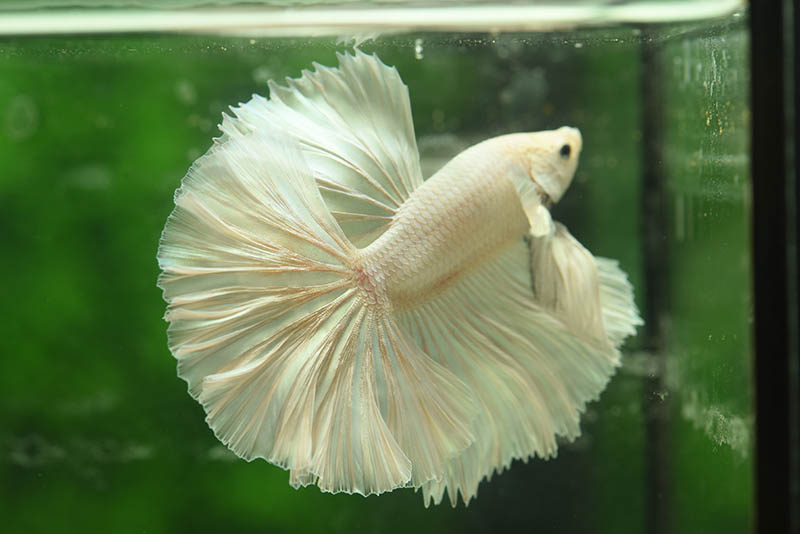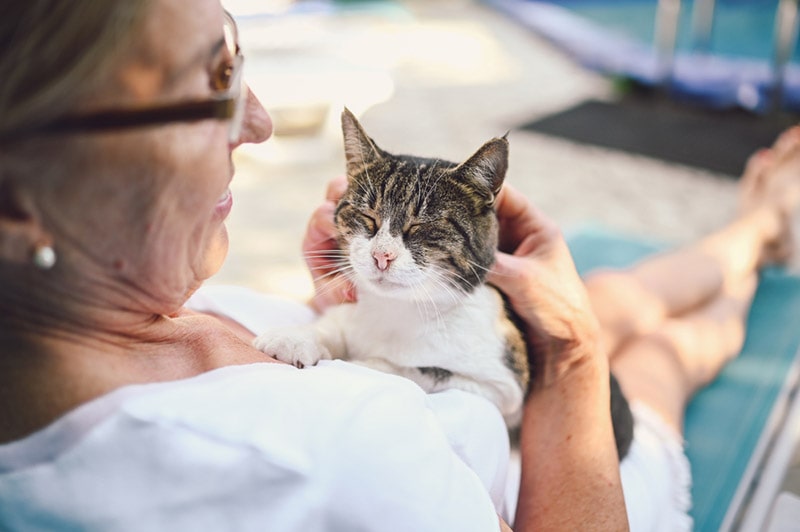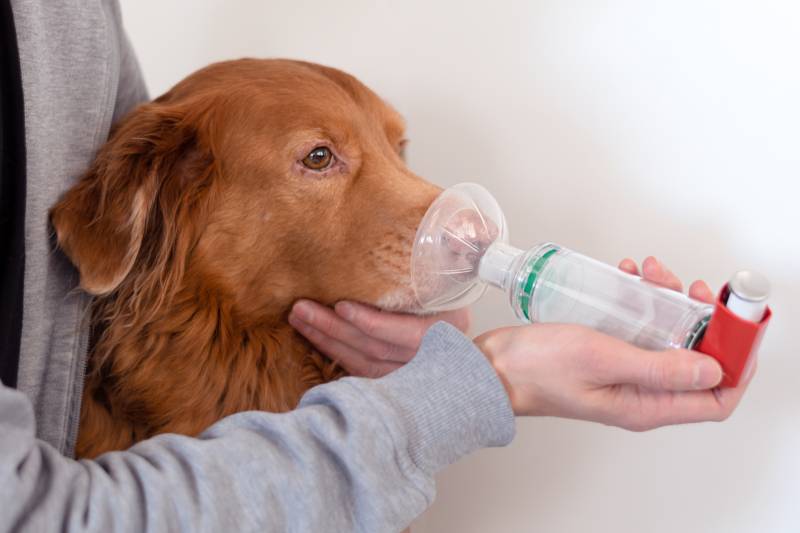How Often Do Cats Poop? What’s Normal & When to Worry (Vet Answer)

Updated on
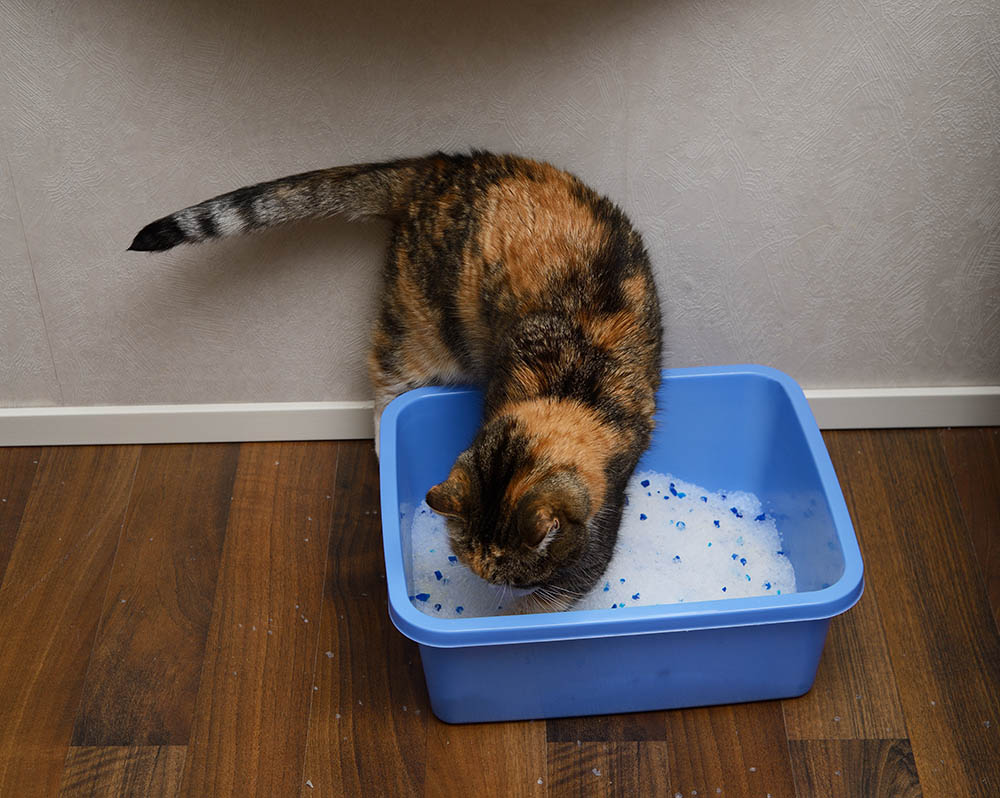
Click to Skip Ahead
How often your cat poops depend on several factors, such as activity level, water consumption, age, and general health. That said, most cats defecate once every 12–36 hours. If more than 36 hours pass, your cat is likely constipated. If your cat has several soft/watery stools in a day, they probably have diarrhea.
For this reason, it is recommended to pay attention to your cat’s litter box habits to prevent any problems of diarrhea or constipation from worsening.
How Often Should Cats Poop?
Digestion in cats takes an average of 15–24 hours. This is the process of turning food into nutrients and absorbing them. It takes between 26 and 35 hours for food to move entirely through the digestive tract of a healthy cat. As a result, most healthy cats will poop once a day. Still, there are healthy cats that defecate twice a day or once every 36 hours.
If your cat defecates more than three times a day or less than once every 1 ½ days, take them to the vet for an evaluation. Your cat may suffer from diarrhea or constipation, respectively, two clinical signs that are usually associated with gastrointestinal disorders.
The 6 Factors That Influence How Often Your Cat Defecates
Certain factors can influence how often your cat poops.
1. Age
Young cats can poop up to three times a day because they consume more food and have a more active metabolism than adult cats. As they age, cats tend to defecate less. Also, very young kittens do not have complete control over their bowel movements.
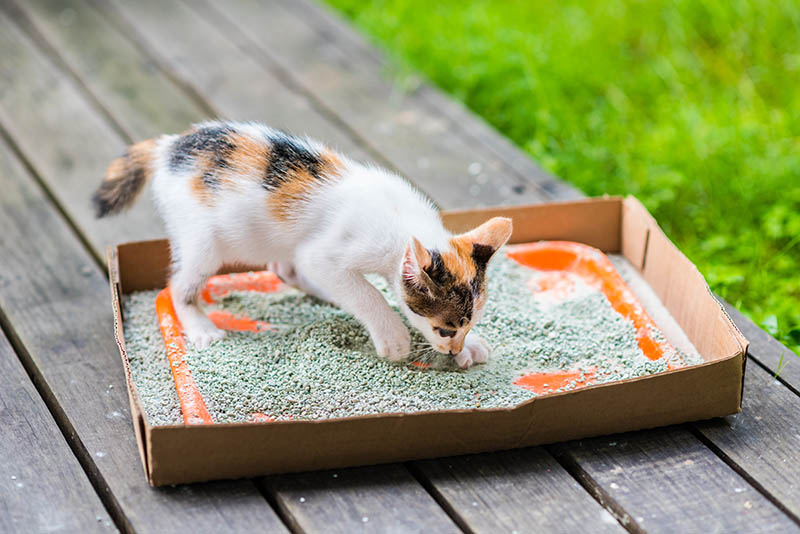
2. General Health
If your cat suffers from gastrointestinal disorders or other medical conditions, they may defecate more often or less than every 12–36 hours. For example, thyroid problems, intestinal worms, or kidney disease can cause your cat to have loose stools and/or frequent diarrhea. In turn, certain medications, spinal problems, or ingested foreign bodies can cause your cat to become constipated.
3. Water Consumption
If your cat drinks enough water—around 4 oz. per every 5 pounds of body weight—they will defecate regularly. This happens because water acts as an intestinal lubricant. It also moistens the feces, making them softer, which facilitates their passage through the digestive tract.
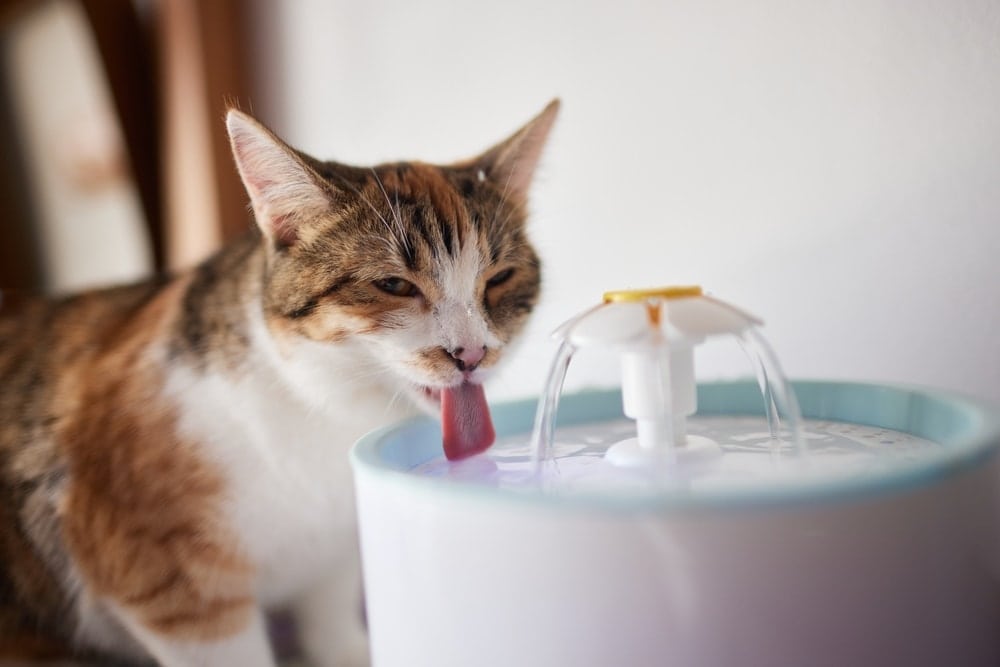
4. Activity Level
Your cat’s activity level can influence how often they defecate. If your cat is sedentary, they will have a slower metabolism and defecate less often. Conversely, kittens are very active and can defecate up to three times a day.
5. Diet
If your cat eats more dry food than wet food, they may defecate less than a cat that eats a combination or only wet food. This happens because wet food contains more moisture than dry food.
The quality of the food also matters. Cat food with not enough fiber will not favor bowel movement, and as a result, your pet will defecate less often.
If you suddenly decide to change your cat’s food, they may suffer from diarrhea because their body has insufficient time to adjust to the new ingredients. Therefore, it is recommended to change your cat’s food gradually, within 7–14 days.
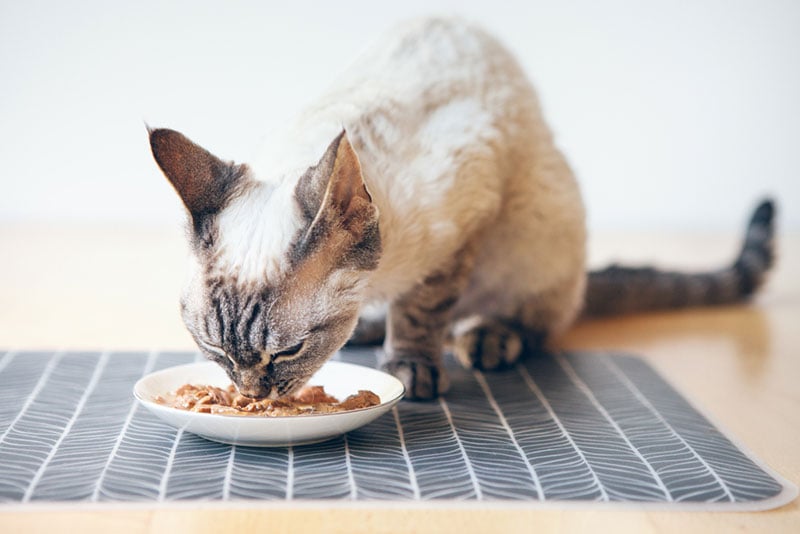
6. Environmental Factors
If several pets live in the same environment or there are stressful factors (e.g., loud noises, strong smells, etc.), it is possible for your cat to defecate less often. A common situation is when several cats have to use the same litter box. To ensure that your cat has healthy intestinal transit, it is recommended to have one litter box per cat, plus one extra.
Cleaning your cat’s litter tray is vital. Some cats will refuse to urinate or defecate in a dirty litter box and choose to do their business in unauthorized places. Where you place the litter box, its shape, and the substrate that you use can also influence your cat’s bowel habits.
What Does Normal or Healthy Cat Poop Look Like?
- It should have a formed shape and not be too soft.
- It should not be too hard either. It should have the consistency of modeling clay.
- Cat poop will always smell, but it should not have an unusually bad smell.
- There should be no blood, parasites, or mucus.
- It should be a dark brown color (not clay yellow, gray, black, reddish, etc.)
The size will depend on the size of your cat. Large breed cats will usually have large feces (for example, a Maine Coon cat’s poop is about 4–6 inches long).
Is Your Cat Constipated?
Constipation represents your cat’s inability to pass stool or a decrease in the frequency at which feces are eliminated from their body. If feces remain in your cat’s intestines for longer than normal, the water they contain is absorbed back into the body. This results in a hard and dry stool that is difficult to pass.
The most common causes of constipation in cats include:
- Dehydration
- Low-fiber diet
- Obesity
- Painful defecation
- Diseases of the spine or other diseases that cause pain
- Ingestion of foreign objects leading to intestinal blockage
- Inflammation of the prostate (in male cats)
- A mass or tumor obstructing the gastrointestinal tract
- Side effects of certain medicines
- Electrolyte imbalances
- Stressful environment
- Dirty litter tray
- Multiple pets in the household
- No defecation for more than 36 hours
- Passing of hard and dry stools
- Straining when defecating
- Vocalizing when defecating
- Low appetite
- Vomiting
- Multiple trips to the litter box but without elimination
- Abdominal pain
- Lack of grooming
Do Cats Poop Out of Revenge?
Although it may seem that cats urinate or defecate in certain places to take revenge on their owners, this is not true. Cats don’t hold grudges because they don’t have the same spectrum of emotions as we do.
That said, cats will defecate (and urinate) outside their litter box due to medical problems, unfavorable conditions in their environment (e.g., a dirty litter box, multiple pets, etc.), or to get their owner’s attention.
If your cat starts adopting this unwanted behavior, a visit to the vet is essential. Do not punish your pet, as you risk causing them even more stress, which can exacerbate this behavior.
When to See a Vet
You should contact the vet whenever there is a change in your cat’s defecating habits (they are constipated, have diarrhea, or eliminate outside the litter box).
Since there are many causes of constipation and diarrhea, monitoring your cat’s behavior is recommended. Based on their medical history, anamnesis, clinical signs, and medical examination, the veterinarian will make a correct diagnosis for your cat and come up with an appropriate treatment plan.
Diarrhea and constipation are considered medical problems if they last several days and/or are accompanied by other clinical signs (e.g., lethargy, lack of appetite, bloody stool, lameness, stiff gait, etc.). In some cases, they resolve on their own, and your cat won’t need the vet’s intervention. However, your veterinarian should be contacted whenever your cat has a medical or behavioral problem.
Cats are known for hiding or masking their pain, so if you notice something, you should take steps to address it. Moreover, recurrent constipation can lead to megacolon, a pathological state where the cat’s colon becomes enlarged, which is why it is best to address the issue before it complicates.
Frequently Asked Questions (FAQs)
What Should I Do If My Cat Is Pooping Frequently?
More frequent than normal defecation is considered a sign of diarrhea and often occurs when a cat’s diet is suddenly changed or they suffer from food allergies and intolerances. It can also happen due to infections or parasite infestations. If your cat’s diarrhea seems unstoppable and your pet shows other clinical signs (vomiting, blood in the stool, lethargy, etc.), contact the veterinarian. Diarrhea can lead to dehydration, which can be life threatening.
Is It Normal for a Cat to Pass Stool Every 2 Days?
A healthy cat should have a bowel movement once or twice per day and in some cases, once every 36 hours. However, in other cases, the bowel movements may be less frequent. Factors that can delay your cat’s digestive transit are age, diet, health, water intake, and a sedentary lifestyle. If more than 2 days have passed since your cat’s last defecation, contact the veterinarian.
Conclusion
Healthy cats usually defecate once every 24–36 hours. However, age, activity level, medical condition, diet, water consumption, and environmental factors can make cats poop more or less frequently. If your cat hasn’t had a stool for more than 2 days or conversely, they defecate often and have soft/watery stools, contact the veterinarian. In most cases, constipation or diarrhea resolves on its own. But to ensure that your cat is healthy, a visit to the veterinarian is recommended.
See also:
- Should You Toilet Train a Cat? 6 Vet-Reviewed Reasons
- Why Do Cats Get the Zoomies After Pooping? 4 Wild Reasons
Featured Image Credit: Mikhail Olykainen, Shutterstock



